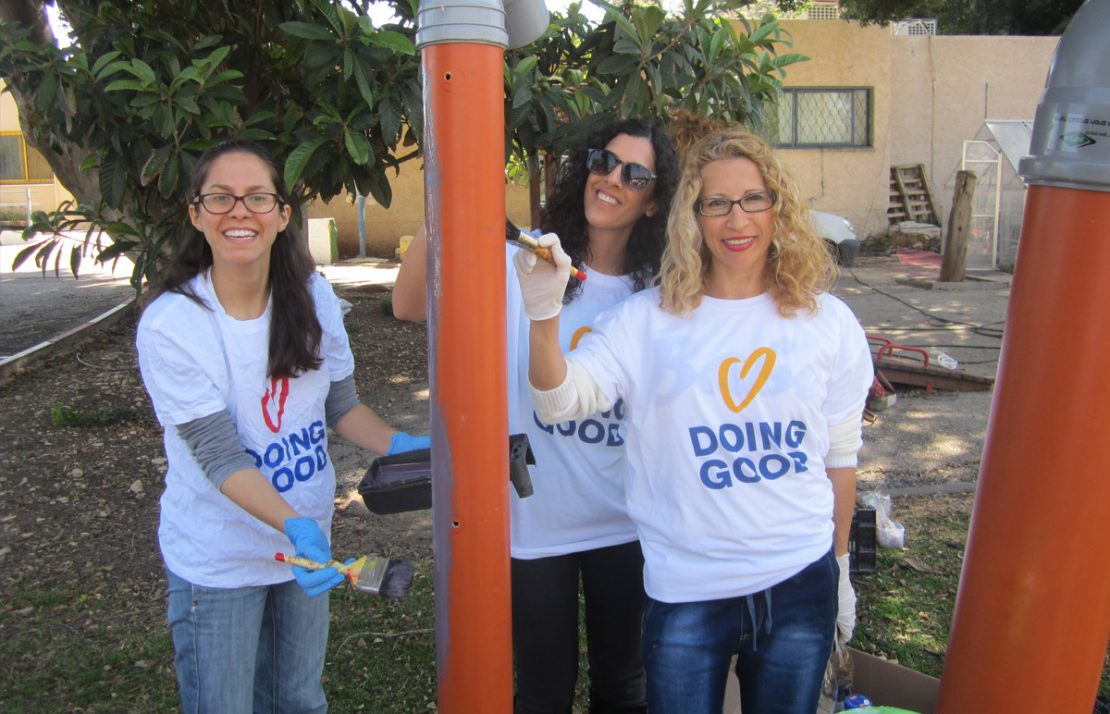
1. Know what you have to offer
Nonprofits are often seeking people who can help them in precise areas, like fundraising, PR and marketing, event planning and finances. Specific skills run the gamut from coaching to mentoring, web design, writing and accounting.
So think strategically about what the volunteer experience can do for you. “Volunteering can be a stepping stone to other opportunities,” said Betsy Werley, director of network expansion at Encore.org, a nonprofit dedicated to helping people over 50 make a social impact, and former executive director of The Transition Network, a national group for women over 50 in transition.
Your goal might be to land a paid position at a nonprofit or to use the volunteering time to ramp up your skills and knowledge so you can ultimately launch your own social enterprise.
“If that’s you, you will need to be strategic and sign up for something that will have a result that can move you toward your goal,” said Werley. You want to find volunteering opportunities that will let you, for example, “complete an entire project, so you can say ‘Here is the project I led and what we accomplished,’” she said.
2. Consider your true purpose
Volunteering can be something you want to do “to add a dimension to your life,” explained Werley. “A number of people who are looking to volunteer are searching for community, being with other people, and are not as specific about the mission of the nonprofit,” said Werley. “If you’ve never previously volunteered, this is a way to meet new people and get engaged,” she said.
3. Be realistic about your availability
If it’s going to be too time consuming or too much of a schlep to get there, your burnout factor will ratchet up. Trust me.

4. Decide where and how you want to make a difference
Do you want to devote your energy to a local nonprofit, where you can quickly see the fruits of your efforts and work alongside people in your community? Or spend your time on a larger national effort, perhaps a virtual one, where you’re working on your own via your computer with no face-to-face social interaction?
5. Reach out to alumni associations and faith-based networks
I’ve been a member of two alumni boards: one at my high school, Shady Side Academy in Pittsburgh, and the other at Duke University. The board work has offered me intellectual engagement, makes me feel my expertise is valued and has an impact on the organization at some level. It has also allowed me to make new friends.
Recently, I reached out to Duke’s D.C. Women’s Forum to find out if there were more ways I could be involved close to home. I quickly received an email from the one of the Forum leaders with a list of five suggestions that could be useful for you in volunteering with an alumni group locally, too. They were: serve on one of the local group’s committees; obtain speakers or create a program; manage the group’s presence on the umbrella organization’s website; volunteer at the group’s community service events and speak one-on-one to young alums looking for career guidance.
6. Check out websites geared to skill-based volunteering
A few excellent ones where you can find appropriate nonprofit opportunities: VolunteerMatch.org, Idealist.org,Catchafire.org (for professionals), Serve.gov, and TaprootPlus.org (for pro bono work). Encore.org has a searchable map that shows encore programs around the country.
Typically, you can filter through prospective volunteering assignments based on a cause, what you’re good at and time commitment. For example, at Catchafire.org, which is mostly virtual volunteering, you can choose from a one-hour phone consultation with a nonprofit needing advice to a two-month project.

7. Look for places that let you interview before committing
A conversation with a nonprofit honcho can give you a sense of the group’s agenda and needs so you can see if you think it’s a good fit. Conversely, the talk lets the group decide if it thinks you’ll be right for them.
The federal government’s RSVP (Retired and Senior Volunteer Program) – one of the largest volunteer networks in the nation for people 55 and over that focuses on using your skills – has a well-established interview vetting process to help make the volunteer effort a success for both parties.
8. Investigate local nonprofit matchmakers
“The local lens is a good one for people who aren’t quite sure but kind of want to get their feet wet,” said Werley. “Every big city has some sort of a connector for volunteer opportunities.” For example, there’s Metro Volunteers in Denver and NYC Service in New York City. (My Next Avenue colleague, Chris Farrell, wrote this great piece on finding a matchmaker to launch an encore career.)
9. Start with baby steps
“Each nonprofit has its own culture, and it might not work out the first time,” counseled Werley. “Treat it as a learning experience, and you will find out what you like and don’t like.” Commit to a short-term project and then, if you’re not finding the volunteering fulfilling, politely move on.
“If you are new to volunteering, look at it as dating,” said Werley. “You’re not getting married to the organization.”
This article was originally written by Kerry Hannon for the Next Avenue blog, and appears here edited with permission.




